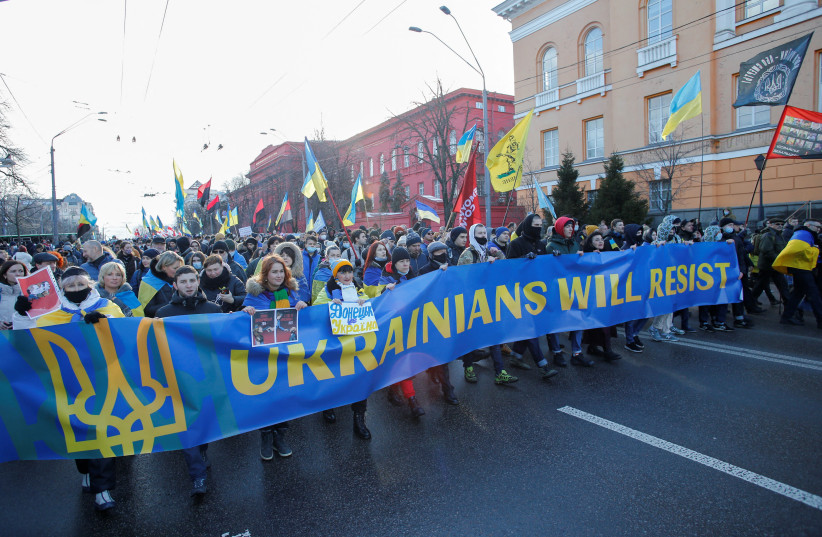WASHINGTON – As tensions along the Ukrainian border remain high, and with the threat of a possible war still looming, Republicans and Democrats are struggling to get on the same page regarding a bill that would sanction Russia should it decide to invade.
After weeks of talks on a bipartisan bill hit a stalemate, Republican Sen. James Risch of Idaho, ranking member of the Senate Foreign Relations Committee, together with 30 Republican senators introduced on Tuesday the “NYET Act” – (Never Yielding Europe’s Territory).
The introduction of the measure does not mean that negotiations have stopped between Republicans and Democrats on a bipartisan Ukraine bill, a senior Republican aide told Reuters.
The 98-page bill seeks to sanction Russia’s Nord Stream 2 pipeline, as well as Putin’s allies and major Russian banks. It will also provide $500 million in Foreign Military Financing for Ukraine, “including $100 million for emergency lethal assistance for critical capabilities like air defense, anti-armor and anti-ship capabilities.”
It would also create a Ukraine Resistance Fund “to help Ukraine resist attempts to occupy or subjugate any new territory Russia may seize, double funding for US military exercises in Europe, and “create a new State Department foreign military financing program for Eastern Europe to help European allies strengthen their own defensive capabilities and incentivize greater [resistance].”

Sen. Risch said in a statement that “while a ‘military’ invasion has not yet occurred, there are other ways Russia can attack Ukraine that would be debilitating for Ukrainians and European security more generally. Rather than simply restating authorities the president already has, the NYET Act takes immediate action to permanently stop Nord Stream 2, sends a powerful deterrent message, imposes heavy economic and military costs on Russia, strengthens US allies and partners, and supports Ukraine via new authorities, funds and tools.”
Republican Sen. John Kennedy of Louisiana said, “What you allow is what will continue, and Russia’s thuggery must end now. This bill would help Ukraine defend itself and punish Putin and his oligarchs for Moscow’s rogue aggression toward Ukraine.”
Democrats slammed their peers for introducing the bill, arguing that both parties should work together on bipartisan legislation.
“It’s a shame that Senate Republicans have decided to choose partisan posturing instead of working to reach consensus on a comprehensive bipartisan proposal that would demonstrate a united front to deter Putin from re-invading Ukraine,” said Sen. Bob Menendez (D-New Jersey), chairman of the Senate Foreign Relations Committee. “The latest proposal by Republicans is largely a reflection of what Democrats had already agreed to in our ongoing conversations, building off of the ‘mother of all sanctions’ we initially proposed.
“A partisan victory is not worth a message of division from Washington, which only benefits Putin. That is why I have worked for weeks to convince Republicans to join us in legislating something that can deter Putin, and why I will continue pushing for my Republican colleagues to reconsider this path before it’s too late for the people of Ukraine.”
Menendez said that there was still hope for a diplomatic breakthrough, and still time to reach a bipartisan agreement so that the US Congress “can help impose the swiftest and harshest of responses for any unprovoked, unjustified actions by Russia.”
Rep. Gregory Meeks (D-New York), chairman of the House Foreign Affairs Committee, said that he was “deeply disappointed” in his Republican colleagues for introducing “a partisan non-starter of a sanctions package. In choosing to do so, they are prioritizing partisanship over unity and self-promotion over meaningful support for the Ukrainian people. This partisan action does not meet the gravity of this serious moment.”
Reflecting the partisan inability to agree on a bill, even amid fears of war in Europe, Senate leaders issued a “statement” on Tuesday that falls short of binding legislation, which said the Senate stands in solidarity with Ukraine and supports sanctions on Russia.
Reuters contributed to this report.
